
When I asked the Tall Poppies for speculative authors, I was given Janie Chang’s name. I fell in love with her two novels; read my reviews on Dragon Springs Road and Three Souls, and eagerly anticipate her upcoming book.
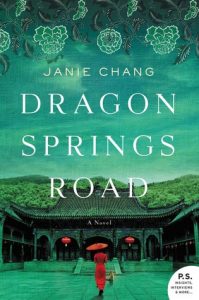 Tell me about your writing process: schedule, environment, strategies, inspirations material and intangible, magic spells, and treats.
Tell me about your writing process: schedule, environment, strategies, inspirations material and intangible, magic spells, and treats.
With only three books under my writing belt, I’m not sure that there is a defined process yet. Each has been a different journey. I’ve sold one novel on the basis of a synopsis, and then delivered a totally different book. I’ve also written a synopsis and stuck to it pretty closely.
I see stories everywhere, but when an idea keeps coming back, it’s the one I take seriously. It always begins with a “now wouldn’t it be interesting if…” or “but what if…” series of thoughts, and then I dive into research to determine whether I can make it work. For my first two books, the opening scene just came to me and that provided impetus. The third … well, I’m still revising the first chapter.
Research itself provides so many ideas, insights, and anecdotes that you pull into your work. I probably spend six months off and on for research.
When the writing begins, I treat it as a job. Its butt glue time. Or as Shilpi Gowda says more elegantly, ABC: Apply Bum to Chair. I write 6 days a week. My husband goes into “support the author” mode and makes dinner. Housekeeping standards nosedive. The cat thinks she’s finally trained me to sit still for hours so that she has a lap to sleep on. Because basically, you need to get words on a page before you know whether your ideas are any good. You can imagine all you want in your head, but without executing those thoughts, you really can’t tell. You have nothing to work with. You can always edit crap, but you can’t edit a blank page.
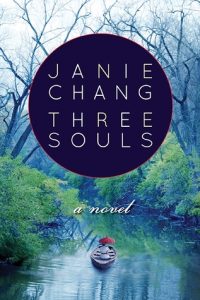 Describe your publishing process from final draft to final product, including publishing team, timeline, and expectations of you as the author.
Describe your publishing process from final draft to final product, including publishing team, timeline, and expectations of you as the author.
Well, this is something I’m trying to change. I’ve been very much a loner during the writing process; mostly because in the early stages my manuscripts are so embarrassingly dog poop that I don’t want to inflict them on author friends, even the ones who’ve offered to be beta readers. Thoughtful reading and critique is time-consuming.
I’ve hired professional editors though, because you do need someone else to offer critique. You’re always too close to your own work. The first draft may not be 100,000 words yet ,but it needs to be the entire story from start to finish, so that the editor can see what you want to achieve with your story, characters, and themes.
Then I revise based on the editorial notes and a discussion with the editor to make sure I understand what she means. This is where the most extensive re-writing comes in. Many drafts. After that, I send the manuscript to my agent who gives it a yea or nay, whether it’s good enough to send on to my publishers. Then it’s working with the editorial teams at HarperCollins (my publishers)–substantive editing, line editing, copy editing (where historical facts are double-checked, among other things), and then the final proof reading.
But lately some author friends have managed to convince me that they really are OK with reading dog poop and I’m starting to think it would be better for my mental health to have writing friends to talk things over with rather than stew on my own while eating too much chocolate.
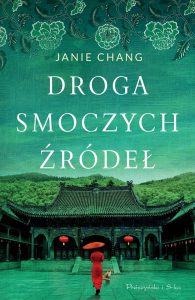
Talk about your support system online and IRL, especially how you (exciting!) came to be a Tall Poppy.
You definitely need to socialize with other published authors. They understand the business challenges, they nod sympathetically when you wail “But writing in third person is so hard compared to first person!”. I have a poet friend who is the loveliest, most non-judgmental person ever and we walk around the seawall talking about everything: adolescence, sexual abuse, the state of Canadian literature. I have a group of women novelist friends and we take turns hosting potluck dinners every 3-4 months. I love cooking, so whenever possible, I invite authors and friends from the publishing industry over. Sometimes my guests don’t know each other, so it’s a good way to help people network.
Social media is good for staying current, but email is the medium I use to exchange deep, dark thoughts with my really good author friends. And OK, it’s not all serious stuff. One of them has a new book coming out in 2019 and it’s going to be a killer. We’ve been sending each other ideas for which actors to cast in which roles for when someone buys the film rights.
As for Tall Poppies–I’m not sure of the process except that it’s by nomination. So I think my nomination might’ve been due to Weina Dai Randel. Then the others check you out. I first met her online when her duology about Empress Wu came out, when we were both part of an online group for writers of novels about Asia. Then she invited me to join her panel in Portland, at the annual Historical Novel Society conference, and that’s when we met IRL. I met about 20 Poppies in Chicago at PoppyCon and they’re all so smart and fun and NICE. It was like an instant sisterhood. You feel you can talk about any problem and everyone will care and offer good advice. The accumulated wisdom in that group is awesome.
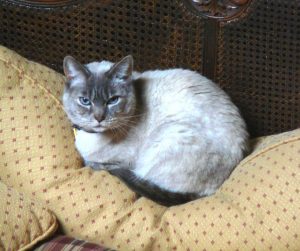
The stories you share of your ancestors and China on your website are fascinating. It’s clear that this drives your work; how does your writing influence your life?
When you know how much work it takes to write 100,000 words, you really need to focus on the story that pushes its way to the front of your brain, the one that’s important enough to sustain your interest through the long months of writing to come. And so far, it’s the China of my parents’ childhood and the history of that era that’s pushing the hardest.
Writing has changed my life totally. You recalibrate your schedule and your relationships. Fortunately, I have friends who understand that writing books is not a hobby; it’s serious business. So I can’t travel with them or do as much with them as before. You need time for writing and mental space to let the story grow.
 What do you love most about your creativity?
What do you love most about your creativity?
I live for those moments in the creative process when your characters take over and take your story in a different direction than what you had planned. This is why we write and write, to get enough of the plot and the characters and their challenges onto the page so that your subconscious has enough to work with. Then you get the reward, of those flashes of insight when you realize “Well of course this is how that character would handle the situation”–and then the next few pages almost write themselves and another piece of the puzzle has fallen into place. It feels like magic.
Connect with Janie and purchase her books:
 In Brazil, Nazi fugitive Klaus Holland, aka Matheus Esperanca, raises his son by a prostitute with a Jewish kapo from Udenspul, the concentration camp he commanded. The son, Deus, considers the kapo his mother, and after her death, takes mysterious photos from her to a professor in his US university to research his ancestry, where he learns the true identity of his father and the extent of his crimes. Olokita brilliantly uses the concept of god as a measurement of morality, or rather lack of humanity, as Klaus plays God in determining who dies, though his own religious beliefs remain deliciously ambiguous. The character development is so well done that dear reader will be researching names. Although written in third person for everyone else, Klaus is in first person, bringing the reader up close and personal to a man with his own version of right and wrong based on his complete lack of empathy, exploring the idea of how powerful he believes himself. The ending revelation is quite coincidental and is evidenced only by Klaus’ perception, so it’s not clear why it’s readily believed by Deus and his new love Heidi. It’s anti-climactic after the delightful irony of Klaus’ downfall. With so many rumors, legends, and news items, inspiring a plethora of literature, on the Holocaust, this unique story of a fugitive hiding out in South America is a definite must-read. It’s themes rove beyond the simple good vs. evil and the idea that one can distinguish such traits in anyone, with characters revealing the dangers within themselves. I received a digital copy of this fantastic novel from the author for an honest review.
In Brazil, Nazi fugitive Klaus Holland, aka Matheus Esperanca, raises his son by a prostitute with a Jewish kapo from Udenspul, the concentration camp he commanded. The son, Deus, considers the kapo his mother, and after her death, takes mysterious photos from her to a professor in his US university to research his ancestry, where he learns the true identity of his father and the extent of his crimes. Olokita brilliantly uses the concept of god as a measurement of morality, or rather lack of humanity, as Klaus plays God in determining who dies, though his own religious beliefs remain deliciously ambiguous. The character development is so well done that dear reader will be researching names. Although written in third person for everyone else, Klaus is in first person, bringing the reader up close and personal to a man with his own version of right and wrong based on his complete lack of empathy, exploring the idea of how powerful he believes himself. The ending revelation is quite coincidental and is evidenced only by Klaus’ perception, so it’s not clear why it’s readily believed by Deus and his new love Heidi. It’s anti-climactic after the delightful irony of Klaus’ downfall. With so many rumors, legends, and news items, inspiring a plethora of literature, on the Holocaust, this unique story of a fugitive hiding out in South America is a definite must-read. It’s themes rove beyond the simple good vs. evil and the idea that one can distinguish such traits in anyone, with characters revealing the dangers within themselves. I received a digital copy of this fantastic novel from the author for an honest review.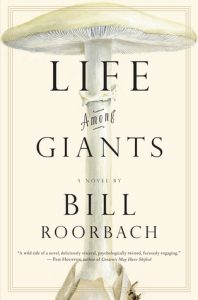 At 17, David witnesses his father’s public assassination for turning state’s witness, his mother collateral damage, his life spared due to spent ammo. He spends decades piecing together evidence to determine the killer’s identity, all while living his life as an NFL quarterback for the Dolphins, a random lover of the famous dancer Sylphide (who lives across the pond from his childhood home) and her protege Emily—introduced by him, and a restaurateur. His sister parcels out relevant information on rare occasions, spending her grief-stricken adulthood playing professional tennis, fighting mental illness, and searching for her parent’s killer against her boyfriend’s pragmatic advice. As Sylphide moves in and out of David’s life, secrets come unmoored and land at his feet every so often. Roorbach has built a fine cast of complex and extraordinary characters, nuanced to the hilt, integrity intact throughout the novel, all maddeningly non-forthcoming for page-turning tension. It can be awkward to follow the timeline back and forth, and David’s discoveries can be out of sync, as when he realizes his sister’s major secret years after his parent’s demise, and then in a following flashback is explicitly told the secret by his sister herself. No opportunity is missed to reference Emily as “the negress”—was that even used as late as the 70s and into the 80s? Her parents could have been a bit more rounded out as individuals instead of representations. These few distractions don’t detract from a unique story with an intriguing storyline and intense meta sex scenes. Roorbach is almost his own genre. He’s the Mainer Carl Hiassen in his dedication to untangling and tying up multiple storylines and presenting humans in all their glory and warts.
At 17, David witnesses his father’s public assassination for turning state’s witness, his mother collateral damage, his life spared due to spent ammo. He spends decades piecing together evidence to determine the killer’s identity, all while living his life as an NFL quarterback for the Dolphins, a random lover of the famous dancer Sylphide (who lives across the pond from his childhood home) and her protege Emily—introduced by him, and a restaurateur. His sister parcels out relevant information on rare occasions, spending her grief-stricken adulthood playing professional tennis, fighting mental illness, and searching for her parent’s killer against her boyfriend’s pragmatic advice. As Sylphide moves in and out of David’s life, secrets come unmoored and land at his feet every so often. Roorbach has built a fine cast of complex and extraordinary characters, nuanced to the hilt, integrity intact throughout the novel, all maddeningly non-forthcoming for page-turning tension. It can be awkward to follow the timeline back and forth, and David’s discoveries can be out of sync, as when he realizes his sister’s major secret years after his parent’s demise, and then in a following flashback is explicitly told the secret by his sister herself. No opportunity is missed to reference Emily as “the negress”—was that even used as late as the 70s and into the 80s? Her parents could have been a bit more rounded out as individuals instead of representations. These few distractions don’t detract from a unique story with an intriguing storyline and intense meta sex scenes. Roorbach is almost his own genre. He’s the Mainer Carl Hiassen in his dedication to untangling and tying up multiple storylines and presenting humans in all their glory and warts.
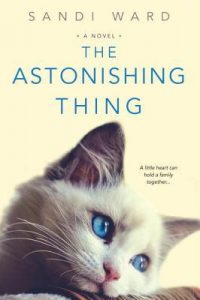 Tell me about your writing process: schedule, environment, strategies, and inspirations tangible and abstract—what’s in your office?
Tell me about your writing process: schedule, environment, strategies, and inspirations tangible and abstract—what’s in your office?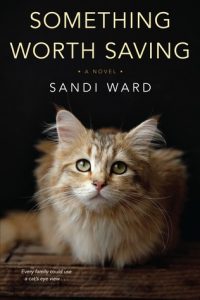 Walk me through your publishing process from final draft to final product: publishing team, timeline, and expectations of you as the author, especially toward marketing and publicity.
Walk me through your publishing process from final draft to final product: publishing team, timeline, and expectations of you as the author, especially toward marketing and publicity.
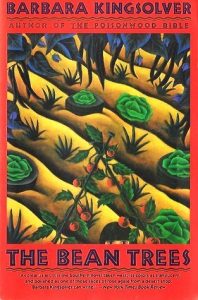 Marietta left Kentucky after high school, changed her name to Taylor, and become a mother through an unexpected incident, ending up in Tucson with a single mother roommate and a job as a tire mechanic for a woman who rescues undocumented immigrants. Selectively mute from obvious chronic abuse, her newly acquired daughter Turtle learns to trust Taylor, who learns to trust in her new friendships as she seeks a way to keep Turtle legally and build their life in Tucson.
Marietta left Kentucky after high school, changed her name to Taylor, and become a mother through an unexpected incident, ending up in Tucson with a single mother roommate and a job as a tire mechanic for a woman who rescues undocumented immigrants. Selectively mute from obvious chronic abuse, her newly acquired daughter Turtle learns to trust Taylor, who learns to trust in her new friendships as she seeks a way to keep Turtle legally and build their life in Tucson. Lily loves Charlie more than any other human, for he rescued her when other potential adopters frowned at her limp. She’d been abused by her previous owner and her broken leg healed without veterinarian intervention. Now he’s being bullied and Lily must figure out a way to help him amid the chaos of Dad’s drinking, Mom’s sadness, his sister’s possible suspect boyfriend, and his big brother’s anger. The unique perspective of a cat gives readers a view from inside the family, but with a pure, some might say naive, but definitely less than jaded, outlook. Lily can be as surprised as a person by such things as Charlie’s choice of “mate” being another boy. Ward’s representation of a gender-fluid, gay teenager comes across as natural and inclusive, even as she shows the challenges he must face, especially from his own family. His mother and sister’s acceptance counter his father’s confusion and his brother’s resistance. Of course there’s a romantic interest for mom, who’s separated from dad and planning divorce. However, he immediately touches her intimately and insinuates himself into family issues, coming across as a bit creepy rather than romantic—too much too soon. This is the only part of the story that doesn’t flow organically, a small distraction. This story presents multiple serious subjects that are handled with compassion: alcoholism, addiction, chronic pain, divorce, and gender expectations. Ward takes her family down a path of resolution surprising, yet realistic. Readers who love main characters off the beaten path will appreciate this story; animal lovers will be vindicated.
Lily loves Charlie more than any other human, for he rescued her when other potential adopters frowned at her limp. She’d been abused by her previous owner and her broken leg healed without veterinarian intervention. Now he’s being bullied and Lily must figure out a way to help him amid the chaos of Dad’s drinking, Mom’s sadness, his sister’s possible suspect boyfriend, and his big brother’s anger. The unique perspective of a cat gives readers a view from inside the family, but with a pure, some might say naive, but definitely less than jaded, outlook. Lily can be as surprised as a person by such things as Charlie’s choice of “mate” being another boy. Ward’s representation of a gender-fluid, gay teenager comes across as natural and inclusive, even as she shows the challenges he must face, especially from his own family. His mother and sister’s acceptance counter his father’s confusion and his brother’s resistance. Of course there’s a romantic interest for mom, who’s separated from dad and planning divorce. However, he immediately touches her intimately and insinuates himself into family issues, coming across as a bit creepy rather than romantic—too much too soon. This is the only part of the story that doesn’t flow organically, a small distraction. This story presents multiple serious subjects that are handled with compassion: alcoholism, addiction, chronic pain, divorce, and gender expectations. Ward takes her family down a path of resolution surprising, yet realistic. Readers who love main characters off the beaten path will appreciate this story; animal lovers will be vindicated. Mark promoted his Edward Gorey biography Born to Be Posthumous on Twitter and I politely asked for a copy to review. He graciously offered publisher contact information, and Little, Brown, & Company sent me a copy. It’s so good, people. If you’re not familiar with Gorey’s work, you will want to be in on this open secret after reading Dery’s book. Gorey was a fascinating character, and Dery is a brilliant storyteller. He’s really so much more—this interview a tiny peek into the profundity of his work, but I’ll let you read up on Mark further on his own website. Links to connect with Mark and purchase his work follow the interview.
Mark promoted his Edward Gorey biography Born to Be Posthumous on Twitter and I politely asked for a copy to review. He graciously offered publisher contact information, and Little, Brown, & Company sent me a copy. It’s so good, people. If you’re not familiar with Gorey’s work, you will want to be in on this open secret after reading Dery’s book. Gorey was a fascinating character, and Dery is a brilliant storyteller. He’s really so much more—this interview a tiny peek into the profundity of his work, but I’ll let you read up on Mark further on his own website. Links to connect with Mark and purchase his work follow the interview.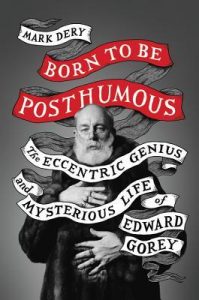 Tell me about your writing process: schedule, environment, strategies, inspirations intangible and material, magic spells, etc.
Tell me about your writing process: schedule, environment, strategies, inspirations intangible and material, magic spells, etc. 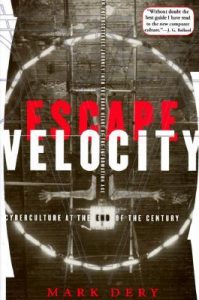 How do you choose your subjects?
How do you choose your subjects?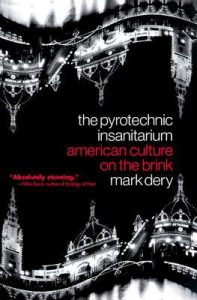 Talk about your support system online and IRL; what motivates you? Who are your biggest cheerleaders?
Talk about your support system online and IRL; what motivates you? Who are your biggest cheerleaders?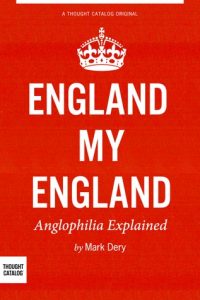 As a writer and public speaker, how does your life influence your work and vice versa?
As a writer and public speaker, how does your life influence your work and vice versa?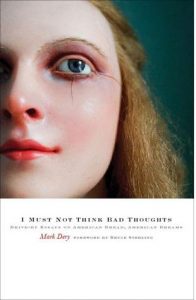 What do you love most about your creativity?
What do you love most about your creativity?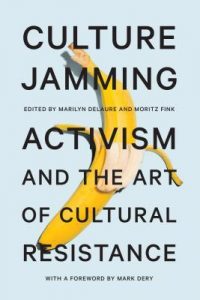 Connect with Mark:
Connect with Mark: This book is more than expected, with historical references, how gardening has morphed into a recreational activity in our industrial age, advances in gardening—for sustenance and pleasure, and a chronology of gardening literature. It’s about far more than planting, encompassing various philosophies and exploring gardening throughout fiction and non-fiction. I was fortunate to receive this wonderful book about the practicalities, aesthetics, and dreams of gardening from the publisher through NetGalley.
This book is more than expected, with historical references, how gardening has morphed into a recreational activity in our industrial age, advances in gardening—for sustenance and pleasure, and a chronology of gardening literature. It’s about far more than planting, encompassing various philosophies and exploring gardening throughout fiction and non-fiction. I was fortunate to receive this wonderful book about the practicalities, aesthetics, and dreams of gardening from the publisher through NetGalley.